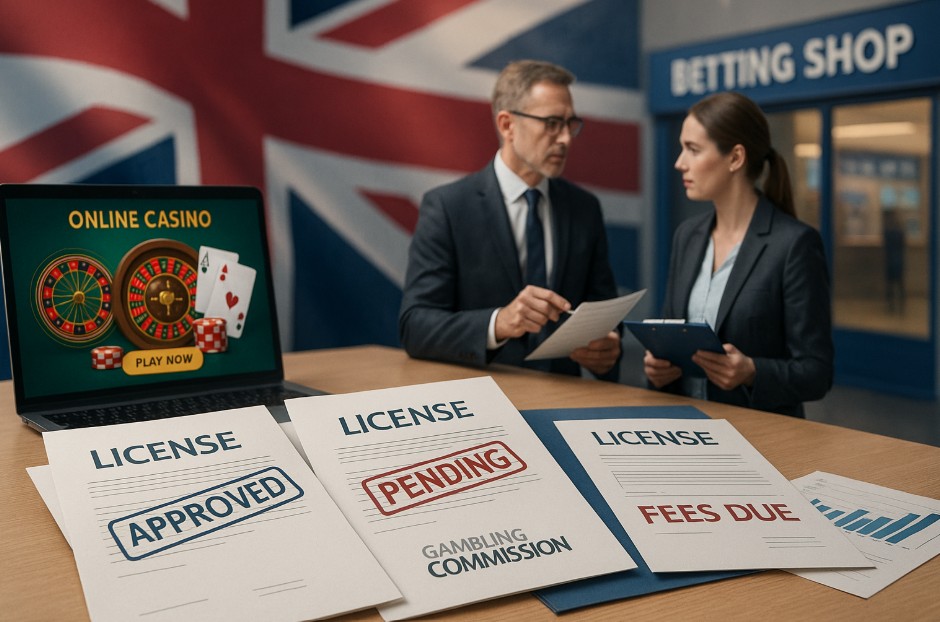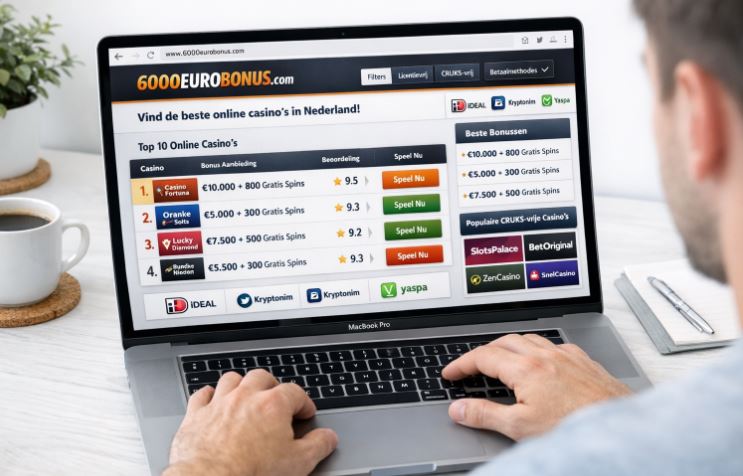Gambling License Cost: How Much is it in 2025?
The UK’s gambling sector continues to be one of the most tightly regulated in the world. As the industry sees continuous growth, projected to surpass £15 billion in revenue in 2025, new and existing operators must be prepared to navigate the legal and financial requirements involved in getting licensed.
Whether you’re launching a start-up in online gambling or expanding a brick-and-mortar betting chain, understanding the full cost of a gambling licence is essential. The UK Gambling Commission (UKGC) has created a structured, multi-licence framework to uphold compliance, consumer safety, and market integrity.
This article outlines the various types of licences, application procedures, annual and hidden costs, and ongoing responsibilities for gambling businesses operating in the UK.
What Is a Gambling Licence in the UK?
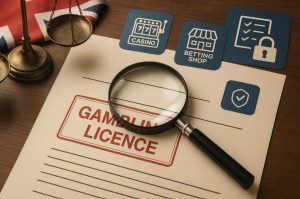
A gambling licence is a legal requirement for any business offering gambling services in Great Britain. Issued by the UK Gambling Commission, it permits operators to offer specific types of gambling activity, both online and in-person, while complying with legislation set out in the Gambling Act 2005.
Licences are designed to regulate commercial gambling by ensuring operators:
- Run fair and transparent services
- Prevent gambling from being linked to crime
- Protect vulnerable groups and children from gambling harm
The UKGC enforces strict rules around operational conduct, player protection, financial transparency, anti-money laundering (AML), and responsible gambling protocols.
Why Is a Gambling Licence Required in the UK?
Licensing is a cornerstone of safe and legal gambling in the UK. The Gambling Act 2005 requires that all gambling activities be licensed to promote three key objectives:
- Prevent gambling from being a source of crime or disorder.
- Ensure gambling is conducted in a fair and open way.
- Protect children and vulnerable persons from being harmed or exploited.
Operating without the appropriate licences can lead to severe penalties including fines, prosecution, and imprisonment, as well as permanent disqualification from the industry.
Do You Need a Gambling Licence?
Whether or not your business needs a licence depends on your gambling activities. Most commercial gambling operations will require at least one, and in many cases, multiple licences. There are four main categories:
- Operating Licence: Required for the business entity offering gambling.
- Personal Management Licence (PML): For individuals overseeing key functions of the business.
- Personal Functional Licence (PFL): For front-line staff like croupiers or cashiers.
- Premises Licence: Required from your local authority if you operate a physical venue.
In some cases, a business may need to hold all three types of licences issued by the UKGC, in addition to a premises licence from the local authority.
What Types of Gambling Licences Exist in the UK?
The UK Gambling Commission issues several types of licences to ensure that every gambling-related activity is properly regulated. These licences are structured into categories based on the type of operation, the medium (online or land-based), and the roles individuals play in the business.
Each licence plays a critical role in legal compliance. Often, operators will require a combination of licences to fully satisfy UK regulatory obligations.
1. Operating Licence
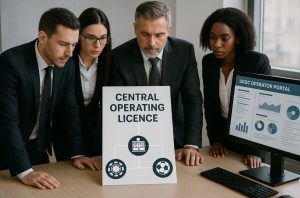
This is the foundational licence for businesses that offer gambling products or services to the public. It applies to all gambling formats, including online casinos, sports betting, lotteries, gaming software providers, and more. Within this category, licences are sub-classified based on the medium of delivery:
- Remote Operating Licence: Required for businesses offering gambling via the internet, mobile, television, or other remote means.
- Non-Remote Operating Licence: Needed for physical venues such as betting shops, arcades, casinos, and bingo halls.
- Ancillary Licence: Applicable to businesses that support gambling but are not directly involved in providing gambling services to the public, such as certain affiliates or marketing providers.
Depending on the business model, a company may require multiple types of operating licences. For example, a company that owns both a land-based casino and an online gambling site would need both remote and non-remote operating licences.
2. Personal Management Licence (PML)

A PML is required for individuals who have strategic influence over the gambling business. This includes those responsible for:
- Overall direction and management
- Financial planning and budgeting
- Marketing and business development
- Regulatory compliance and risk management
- Gambling IT systems and infrastructure
- Anti-money laundering (AML) oversight
It ensures that those in senior positions are qualified, trustworthy, and capable of fulfilling their responsibilities. Each PML holder is assessed for integrity, experience, and criminal background.
A business is typically expected to nominate at least one PML holder as part of the licence application process, though exceptions may apply to small-scale operators.
3. Personal Functional Licence (PFL)

This licence is for operational staff who carry out gambling functions in a casino or bingo venue. It applies to:
- Dealers and croupiers
- Inspectors and pit bosses
- Cashiers
- Surveillance and security staff
PFL applicants are subject to background checks and must demonstrate fitness to work in a gambling environment. While online operators may not need PFLs for their staff, all land-based operators do.
4. Premises Licence
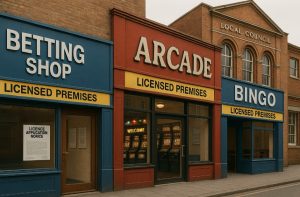
A premises licence is issued by local authorities and is required to operate a physical gambling location. This applies to betting shops, arcades, casinos, and bingo halls. A premises licence can only be obtained after securing an operating licence from the UK Gambling Commission.
Applicants must submit plans and policies, notify various public bodies (such as the local fire authority, police, and environmental health), and publish public notices about their application. Licensing authorities assess applications based on local gambling policies and compliance standards.
5. Lottery and Single Machine Permits

Certain low-level gambling activities, such as fundraising lotteries or private gaming machines, may require permits rather than full licences. Local authorities handle these permits, which are suitable for non-commercial ventures, private clubs, or individual collectors of gaming machines.
However, these permits are strictly limited in scope and should not be used for running commercial gambling businesses.
How Much Do Different Gambling Licences Cost in the UK in 2025?
Licence costs vary based on the type of activity, business turnover, and operational scale. Below are indicative costs for 2025.
UK Gambling Licence Costs (2025 Estimates)
| Licence Type | Application Fee | Annual Fee (Range) |
| Remote Casino Licence | £5,000 – £10,000 | £10,000 – £120,000+ |
| Remote Betting Licence | £3,000 – £10,000 | £6,000 – £115,000+ |
| Non-Remote Betting Licence | £2,640 – £10,000 | £4,000 – £90,000 |
| Bingo Licence | £3,408 – £10,000 | £6,000 – £70,000 |
| Lottery Licence | £500 – £1,737 | £400 – £1,000 |
| Gambling Software Licence | £3,100 – £4,200 | £6,000 – £10,000 |
| Personal Management Licence | £370 | £370 (maintenance every 5 yrs) |
| Personal Functional Licence | £185 | £145 (maintenance every 5 yrs) |
| Premises Licence | Varies by council | Varies by location and size |
Note: All fees are non-refundable, and maintenance fees apply to personal licences every five years.
What Factors Influence Gambling Licence Cost in the UK?
Several factors determine the final licensing cost:
- Gross Gambling Yield (GGY): The higher your revenue, the higher your annual fees.
- Remote vs Non-Remote: Online platforms typically face stricter compliance and higher costs.
- Combination of Activities: Offering multiple gambling services (e.g., sports betting and casino games) increases costs.
- Licence Variation: Modifications to your licence (e.g., adding new services) may incur additional fees.
How Do You Apply for a Gambling Licence in the UK?
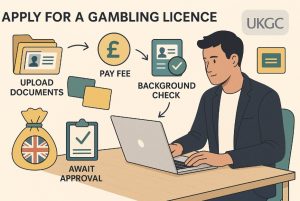
Applying for a gambling licence in the UK involves a rigorous and structured process designed to ensure only suitable applicants are granted permission to operate. The process is not only about paperwork; it’s about proving your business can uphold the UK’s regulatory objectives and standards.
Step-by-Step Process
1. Determine Which Licences You Need
Begin by identifying all the relevant licences for your business. This will likely include an operating licence, at least one personal licence, and possibly a premises licence if operating in a physical location.
2. Create an Account with the Gambling Commission
All applications are processed through the UK Gambling Commission’s online portal. Businesses and individuals must register and create a secure account.
3. Prepare the Required Documentation
Applicants must submit detailed documentation, including:
- A business plan
- Financial forecasts and bank statements
- Ownership structure and corporate identity
- AML and social responsibility policies
- Details of all key personnel involved
For personal licences, applicants also need to submit personal identification, addresses for the past five years, and documents related to any overseas residency.
4. Undergo Suitability and Background Checks
The Gambling Commission conducts in-depth checks into the business and all key individuals. These include:
- Criminal background checks (DBS or Disclosure Scotland)
- Credit history and financial probity
- Business track record and references
- Understanding of gambling legislation and compliance standards
International applicants must submit certified police and credit reports translated into English.
5. Pay the Application Fee
Fees must be paid upfront via credit or debit card (excluding American Express or Visa Electron). These fees are non-refundable, even if the application is rejected or withdrawn.
6. Wait for Review and Assessment
Most applications are reviewed within 8 to 16 weeks, depending on complexity. The Gambling Commission assesses the applicant’s ability to uphold licensing objectives and legal obligations.
7. Receive a Decision
If successful, your licence will be issued and registered publicly. If rejected, you’ll receive reasons for the decision and details on how to appeal.
8. Apply for Local Premises Licence (if applicable)
After obtaining your operating licence, apply for a premises licence through your local licensing authority. This includes notifying relevant public bodies and publishing notice of your intent to operate.
Annual Fees and Ongoing Licence Maintenance
Annual fees are payable before the anniversary of your licence issue date. The Gambling Commission issues invoices six weeks in advance. Failure to pay on time will result in licence revocation.
Key Annual and Maintenance Fees:
| Fee Type | Amount | Due Date |
| Operating Licence Annual Fee | Based on GGY | Before the licence anniversary date |
| PML Maintenance Fee | £370 | Every 5 years |
| PFL Maintenance Fee | £145 | Every 5 years |
All fees must be paid via card or bank transfer and are non-refundable. You can manage payments through the UKGC’s eServices platform.
What Are the Hidden or Additional Costs to Consider?
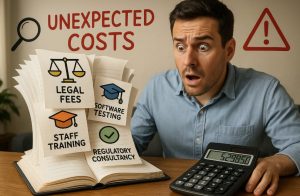
While the official licence fees are clearly outlined, gambling businesses often face a range of unadvertised expenses during both the application and operational phases. These costs can add significantly to the total investment required.
1. Legal and Regulatory Advisory Services
Given the complexity of compliance, many operators choose to hire consultants or law firms to help with:
- Drafting application documents
- Preparing compliance policies
- Advising on risk management and AML controls
Legal assistance can range from a few thousand pounds to over £20,000 for complex or multi-jurisdictional operations.
2. Technical Certification and Testing
Before offering any games, platforms must be tested and certified by accredited third-party labs. These services ensure compliance with:
- Fair gaming standards (RNG testing)
- Data protection laws (GDPR)
- Security protocols
Costs vary depending on the size of your game library and platform infrastructure.
3. Background and Criminal Record Checks
For personal licence applications, criminal checks are conducted through DBS or Disclosure Scotland. While the base application fee covers most of these costs, overseas applicants will need to pay for translated police reports and credit checks from their country of origin.
4. UK Correspondence Address
If your business is based outside the UK, you must provide a physical UK address (not a PO Box) where legal documents can be served. This could require renting office space or appointing a UK-based solicitor or accountant to act as your agent.
5. Software and Hosting
Licenced operators must host games and player data on secure, compliant servers. Depending on the scale of your operation, infrastructure costs can escalate rapidly.
6. Responsible Gambling Tools
Operators are expected to implement features such as self-exclusion tools, player activity monitoring, affordability checks, and third-party integrations like GAMSTOP. These systems require both technical integration and ongoing licensing fees.
7. Training and Staff Accreditation
Employee licensing, AML training, and compliance workshops are often required before staff can begin work in a regulated gambling business.
Budgeting for a Gambling Business in the UK

Launching a compliant and profitable gambling business in the UK demands more than just licensing. You’ll need to consider both the initial capital expenditure and the long-term operational costs associated with maintaining regulatory approval.
Detailed Budget Breakdown:
| Category | Estimated Cost Range |
| Operating & Personal Licence Fees | £5,000 – £100,000+ |
| Software & Platform Development | £20,000 – £150,000+ |
| Legal, Consultancy & Compliance | £2,000 – £20,000 |
| Testing & Certification | £5,000 – £20,000 |
| Staff Licensing and Training | £3,000 – £10,000 |
| Responsible Gambling Tools | £2,000 – £15,000 annually |
| Hosting, Security & IT Infrastructure | £5,000 – £30,000+ |
| Advertising and PR | £10,000 – £50,000+ |
| Maintenance & Annual Fees (Yearly) | £10,000 – £100,000+ |
These figures vary significantly based on business scale, licence types, and target markets. However, even small-scale operators should anticipate a minimum initial investment of £50,000 to £100,000, with medium to large online operations requiring upwards of £300,000.
Effective budgeting also requires setting aside contingency funds to deal with regulatory changes, additional licence variations, and evolving technology demands.
Conclusion
Operating in the UK’s regulated gambling industry provides legitimacy, consumer trust, and long-term sustainability. While the initial and ongoing costs may seem daunting, they offer access to a secure, high-potential market. For businesses serious about growth and compliance, the investment in licensing is not only worthwhile it’s essential.
FAQs on UK Gambling License Costs in 2025
What licences might my gambling business need?
Depending on your business structure, you may need a combination of operating, personal, and premises licences.
Do I need a separate licence for online operations?
Yes. Remote gambling operations require a distinct licence, even if you already hold a non-remote one.
Can one person hold multiple personal licences?
Only one Personal Management Licence is needed per individual, regardless of the number of roles they oversee.
How long do criminal checks take for licence applications?
Standard checks take 1 to 3 weeks. Electronic DBS checks are faster but require consent.
What happens if I don’t pay my annual fee?
Your licence will be revoked. You’ll need to reapply and pay new fees if you want to resume operations.
Can I appeal a rejected application?
Yes. Appeals can be submitted to the HM Courts & Tribunals Service within 28 days of notification.
Are there alternatives to full licences for small operators?
In rare cases, single machine permits may apply to non-commercial, individual machine owners, but not for commercial use.
Disclaimer:
This information is not intended to promote gambling in any form. It is provided for general knowledge only. Please be aware and gamble responsibly.

